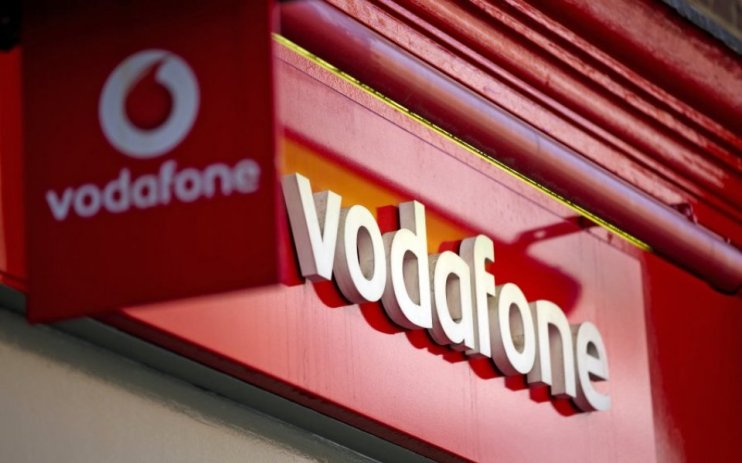Vodafone improves guidance but lowers dividend after €1.9bn loss

Vodafone hiked its full-year earnings guidance today as organic earnings rose 1.4 per cent in its second quarter, but the telco fell to a loss of almost €1.9bn in its latest half-year results.
Read more: BT shares fall as Virgin Media decides to ditch BT mobile for Vodafone network
The figures
Vodafone fell to a €1.9bn (£1.6bn) loss for the six months to the end of September, largely due to India’s decision to change the way it charges telcos for using airwaves.
But the telecoms giant returned to growth in its second quarter, posting a 1.4 per cent rise in adjusted earnings before interest. tax, depreciation and amortisation (Ebitda).
That helped it raise full-year earnings guidance to between €14.8bn and €15bn, up from its previous range of €13.8bn to €14.2bn.
Group revenue ticked up 0.4 per cent to €21.94bn but free cash flow sank 94 per cent to just €34m, down from €566m this time last year.
Meanwhile net debt rocketed almost 50 per cent to €48.1bn after the $22bn acquisition of Liberty Global over summer.
Investors were still left nursing a loss per share of 7.24 cents. Though that was much lower than the 28.89 cents per share loss shareholders suffered this time last year.
Vodafone also lowered its interim dividend to 4.50 cents per share, a seven per cent drop from 2018’s 4.84 cents per share.
Why it’s interesting
Vodafone’s share price rose 1.9 per cent to 163.4p in early trading after it raised its outlook sharply up to €15bn.
Its disposal of Liberty Global’s German cable assets, from which Vodafone made €18.4bn, and the disposal of its New Zealand business, pushed up the telco’s earnings outlook.
However, the telecoms giant took a massive hit from India’s decision to penalise its joint venture, which has hurt its local operation and cost it almost €2bn.
The ruling also forced Vodafone to reduce free cash flow guidance from “at least” €5.4bn to “around” €5.4bn.
Boss Nick Read now plans to “build on” the company’s return to topline growth in the second half of the year. And he said Vodafone has made a “fast start”on integrating Liberty Global into the firm.
“Vodafone raised guidance and put Indian troubles behind it,” Markets.com chief market analyst Neil Wilson said.
Vodafone’s share price has suffered a turbulent few months of trading since the telecoms firm slashed its dividend for the first time ever in May.
The company is hoping to reverse its full-year loss of €7.6bn amid a squeeze on margins in the increasingly cut-throat telecoms sector.
However, there have been some signs that Vodafone has made progress in its cost-cutting plans under group chief executive Nick Read.
In July the firm’s shares were given a much-needed boost after it revealed plans to spin off its lucrative mobile masts business into a new independent company with potential earnings of €900m.
Vodafone has also completed the sale of its New Zealand division, and has announced a network-sharing agreement with Telecom Italia.
Moreover, several recent deals have suggested Vodafone may be gaining ground against its rivals.
Last week the firm signed a five-year deal for Virgin Mobile’s business from 2021, stealing it from rival BT, while Vodafone yesterday revealed plans to roll out full-fibre broadband in three new UK cities.
Read more: Vodafone expands full-fibre network with Openreach deal
What Vodafone said
Chief executive Nick Read said:
I am pleased by the speed at which we are executing on the strategic priorities that we announced this time last year. This is reflected in our return to top-line growth in the second quarter, which we expect to build upon in the second half of the year in both Europe and Africa.
The consistency of our commercial performance has improved in both regions, and we have made a fast start on integrating the acquired Liberty Global businesses, where we see significant long-term opportunity.
Our digital transformation is already creating a better experience for our customers, improving our differentiation,supporting growth and at the same time reducing our structural costs.
We have now secured network sharing agreements across most of our major European markets, and we recently announced a major long-term wholesale partnership with Virgin Media in the UK, in order to improve the utilisation of our network assets.
And we expect our European Tower company to be operational by May next year, enabling us to continue to unlock the significant value embedded in our tower infrastructure.